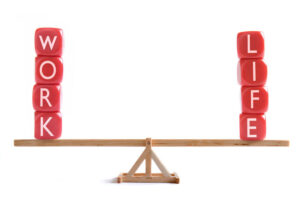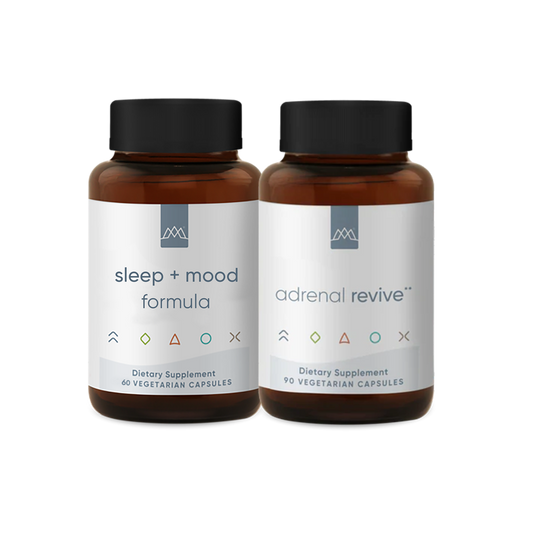 It is said that the best life is a balanced life. In most instances, this advice has proven invaluable. Yet, finding the right balance between work and life is often more difficult in practice than in theory. A simple way to think about balancing your life is by managing stress. It’s why we refer to the work–life balance in terms of periods of work––which is performance-related and therefore often stressful, and periods in our life where we recharge with activities that reduce stress or are stress-free.
It is said that the best life is a balanced life. In most instances, this advice has proven invaluable. Yet, finding the right balance between work and life is often more difficult in practice than in theory. A simple way to think about balancing your life is by managing stress. It’s why we refer to the work–life balance in terms of periods of work––which is performance-related and therefore often stressful, and periods in our life where we recharge with activities that reduce stress or are stress-free.
Periodic stress is productive, chronic stress kills.
While it might seem best to remove all stress from our lives, that’s not how it works. Truth is, too little stress can leave you bored and depressed, whereas too much can cause worry, anxiety, and poor health. The right amount of periodic (acute) stress, however, stimulates the brain and improves fitness and health.
Stress is our body’s biological response to threats and challenging situations. Stress stimulates your natural survival mechanism in response to danger, called the “fight or flight” response. The stress response causes an increased production of specific stress hormones – with the primary hormone being cortisol.
In the short-term, stress is beneficial. However, chronic stress may lead to unwanted health conditions including high blood pressure, a hindered immune system, and cardiovascular disease.
In this article, we’ll review how to harness the positive effects of stress through an active lifestyle and how to manage it in other areas so you can live your best life.
What doesn’t kill you makes you stronger
When we push (stress) ourselves to perform better at work, school, or socially, we grow. We also grow stronger from adversity. Although, too much long-term chronic stress can cause irreversible damage. Here are 8 ways to manage that:
1. Make time for productive stress
A great way to manage stress is to use it to your advantage. This is done by scheduling short periods of productive stress.
2. Intermittent exercise
 It’s almost ironic that the best stress relief comes from physical stress/activity. That’s because exercise really does prompt your body to release feel-good hormones like endorphins, which can help you to feel less stressed. Researchers liken short periods of acute stress to that which was experienced by our ancestors who had to run from predators or hunt for food.
It’s almost ironic that the best stress relief comes from physical stress/activity. That’s because exercise really does prompt your body to release feel-good hormones like endorphins, which can help you to feel less stressed. Researchers liken short periods of acute stress to that which was experienced by our ancestors who had to run from predators or hunt for food.
When it comes to stress relief exercise, it doesn’t have to be full-blown or long workouts. In fact, short bursts of intermittent exercise are best for reducing stress.
It doesn’t take much to get the benefits of short bursts of exercise. All you need to do is break from inactivity. This can be done by getting up to walk around at work or home – even when relaxing. You may even set a timer every hour or so to do 20 jumping jacks, push-ups, or air squats. Remember, these short bursts of activity will help you perform better in your primary goal-oriented exercise regimen.
3. Structured doing
 Stress can kick in when you’re feeling overwhelmed by the number of tasks that need to be done or deadlines that must be met. For many, this stress simply comes from writing out that dreaded to-do list. Research has shown that simply looking at a long list of tasks can overwhelm your brain causing it to release stress hormones.
Stress can kick in when you’re feeling overwhelmed by the number of tasks that need to be done or deadlines that must be met. For many, this stress simply comes from writing out that dreaded to-do list. Research has shown that simply looking at a long list of tasks can overwhelm your brain causing it to release stress hormones.
That’s a recipe for anxiety and poor performance.
A better strategy is to keep a running list of notes, ideas, goals, and projects you “may” want to do in the future. Then each day pick a few items from these notes that will push you forward in your work and personal life. Simply put.
4. Focus on doing what matters and finishing.
This is where the greatest satisfaction will be found, which will wire your brain for success. Remember this is not a to-do list, but a mechanism so you don’t feel overwhelmed without a list of what you’re thinking and doing.
5. Open your mind
 Much like structured doing, scheduling time to listen to new music, read, or listen to podcasts or Ted Talks provides positive stimulation for your brain which promotes the growth of new brain cells. Have fun with it by picking topics of personal interest or for career growth which research has shown reduces stress and positively reinforces good habits.
Much like structured doing, scheduling time to listen to new music, read, or listen to podcasts or Ted Talks provides positive stimulation for your brain which promotes the growth of new brain cells. Have fun with it by picking topics of personal interest or for career growth which research has shown reduces stress and positively reinforces good habits.
Scientists have established that building new brain cells are triggered by acute stress in the same way our brains adapt to learning new tasks. Exposing yourself to new information and learning tasks should be viewed as an exercise for the brain and an antidote for stress.
6. The pause that refreshes.
Just as brief periods of positive stress can help manage stress, taking time away from intense activities or problems can work wonders. You’re not a child anymore, but that doesn’t mean taking a time out doesn’t apply when you’re stressed. Just like in children, stress can affect our emotions and how we behave, as well as our physical and mental health. Stress might make you become irritable or short-tempered, easily upset, or agitated.
When you start noticing that stress is affecting how you feel or behave, it might be time to step away and spend a few minutes just focusing on yourself. Do something you enjoy like listening to music or reading as noted above.
7. Breathe
 Stress and anxiety can affect how you breathe, which has flow-on effects on how your body and mind feel. Taking a few deep breaths can help slow your breathing and heart rate, relax your muscles, and calm your mind.A popular breathing method to reduce stress is to follow a 4-7-8 cadence for one minute. Here’s how.
Stress and anxiety can affect how you breathe, which has flow-on effects on how your body and mind feel. Taking a few deep breaths can help slow your breathing and heart rate, relax your muscles, and calm your mind.A popular breathing method to reduce stress is to follow a 4-7-8 cadence for one minute. Here’s how.
Breathe out completely through your mouth.
1. Start a counter (watch or phone)
2. Breathe in quietly through your nose for 4 seconds.
3. Hold your breath for 7 seconds.
4. Making a whoosh sound, breathe out through your mouth for 8 seconds.
5. Repeat steps 2 to 4 for four “cycles.”
 8. Stress management through science-based nutrients
8. Stress management through science-based nutrients
By using the techniques above you can use periodic stress and relaxation to maintain a healthy life balance. You may also want to incorporate high-quality supplements like the Maxliving Stress Management Bundle to help balance stress hormones for a healthy stress response.
About the Author
 Zach Zovath graduated with a Bachelor’s degree in Exceptional Education from the University of Central Florida. He continued on to receive his Master’s degree from the College of Education and Human Performance at the University of Central Florida. He is a master level personal trainer, coach, and health consultant. In addition, his specializations include corrective exercise, performance enhancement, prenatal/postpartum core stability, and exercise therapy. As a result of his education and experience in the health and fitness industry, he has developed fast and effective exercise programs for health care facilities.
Zach Zovath graduated with a Bachelor’s degree in Exceptional Education from the University of Central Florida. He continued on to receive his Master’s degree from the College of Education and Human Performance at the University of Central Florida. He is a master level personal trainer, coach, and health consultant. In addition, his specializations include corrective exercise, performance enhancement, prenatal/postpartum core stability, and exercise therapy. As a result of his education and experience in the health and fitness industry, he has developed fast and effective exercise programs for health care facilities.
References
https://www.ncbi.nlm.nih.gov/pmc/articles/PMC2568977/
https://onlinelibrary.wiley.com/journal/15322998
https://www.mayoclinic.org/healthy-lifestyle/stress-management/in-depth/stress-symptoms/art-20050987
https://www.apa.org/topics/stress


